Thank you for following Uncanny Landscapes. Here’s a new episode of the podcast; an interview with writer James Canton. And this newsletter (below) includes a new essay by Camilla Nelson - guest essays being a feature you’ll see a bit more frequently now. As you know, this is a free project, both newsletter and podcast - nothing is paywalled. If you're able to support my work through a donation (aka paid subscription) - thank you!! I truly appreciate it. And if you're not, perhaps you can support by telling a friend (or two, or 100) about the Substack's free subscriptions and accompanying podcast.
The podcast (and all back ‘issues’) are also available at:
https://uncannylandscapes.podbean.com/
and on most podcast platforms. As always, books, records and events ‘n’at here: https://linktr.ee/oldweirdalbion
Links:
James Canton
U of Essex MA in Wild Writing
Grounded
Pefkin (music)
Camilla Nelson’s Workshops
This installment of the Uncanny Landscapes podcast and newsletter includes two extremely different takes on what we’ll call ‘writing’ about the world we inhabit. In the podcast, James Canton talks about his book Grounded, a trek through sacred space that looks at a different way to define ‘sacred’ and desecrated; beauty and memory. In the newsletter, Camilla Nelson writes about her new course, Becoming: Towards an Experimental Ecology of Line, which uses anthropologist Tim Ingold’s taxonomy of the ‘line’ to find ways to both use and shed lines and linear thinking in order to reimagine, and establish lines of communication with/near/about, the ecosystems we inhabit.
James Canton is a writer an educator whose books include Ancient Wonderings, The Oak Papers and his latest, Grounded: A Journey into the Landscapes of our Ancestors. James is also the director of the MA programme in Wild Writing: Literature, Landscape and the Environment at University of Essex in England. In this interview, he and I talk about Grounded, landscapes of the sacred and the desecrated, and the discoveries made around England as well as right here in the liminal spaces of East Anglia - the Eastern English landscapes that he and I both live in / by / near.
Camilla Nelson has been a guest on Uncanny Landscapes in the past. Here, as the first of what will hopefully be many contributions to the newsletter by practitioners of all sorts, Camilla writes about the pathways that furrowed her own way towards becoming, and the practice it has turned into - as well as the workshops she starts next week looking into new ways of working across and between forms.
Listen to James in the podcast above; read Camilla’s essay below. And thanks for accessing Uncanny Landscapes.
BECOMING: Towards an Experimental Ecology of Line by Camilla Nelson.
What does kinship between human and nonhuman language actually mean?
I’m gathering a group of creative-critical thinkers to explore how our line creation intersects with the line-making of other animate species … sinking deeper into this questioning.
I’ve been seduced by the idea of becoming ever since I discovered A.N. Whitehead’s process philosophy or process theology as a teenager. I was brought up by a Catholic family in a Catholic secondary school. In contrast to the hard and fast rules and doctrines I associated with morality, church-going and Christianity, Whitehead’s process philosophy envisioned a world, a morality and even a divinity, engaged in a process of becoming. There were no hard and fast rules, no outsides, no finished works. To my teenage brain, Whitehead seemed to suggest that God and the world were different ways of talking about the same messy intelligence, an intelligence which was learning about itself as it evolved. I was transfixed. God was not all-knowing and there was no pre-decided outcome. What relief! And empowering to boot. According to process philosophy, we are all co-creators and what we do and think affects how the world evolves. We are the divine.
In my twenties I recognised this message in Helene Cixous’ ecstatic pronouncement: “I am spacious singing flesh [..] but above all living because changing I” (Sorties). James Joyce’s Finnegan’s Wake seemed to similarly embody this principle: “Every person, place and thing in the chaosmos of Alle anyway connected with the gobblydumped turkery was moving and changing every part of the time” (118.21). It was in my twenties, too, that I encountered Lynn Margulis process-led biology that espoused the same logic but saw no need for the divine:
‘We Homo sapiens sapiens and our primate relations are not special, just recent: we are newcomers on the evolutionary stage. Human similarities to other life-forms are far more striking than the differences […] humans have indeed evolved, but not just from apes or even from mammals. We evolved from a long line of progenitors, ultimately from the first bacteria […] My claim is that, like all other apes, humans are not the work of God but of thousands of millions of years of interaction among highly responsive microbes.’
Margulis, The Symbiotic Planet: A New Look at Evolution (1998: 4-5)
Whether you believe this ever-shifting process that we are part of is divine or not, I was impressed by the implicit endorsement of Whitehead’s process philosophy in biological and literary terms. My particular line of questioning brings these spheres together to ask how our biological co-evolution expresses itself in our language-making. How do our cultural behaviours demonstrate kinship with the rest of the world? Human language is often regarded as the factor that defines our separateness from animals. My aim has been to excavate its kinship.
Biosemiotics, ‘the study of the myriad of forms of communication and signification observable both within and between living systems’ (Favareau, 2010), offers one means of engagement with this line of thinking:
Up until very recently […] it had been implicitly assumed that the use of terms such as message, signal, code, and sign with respect to non-linguistic biological processes was ultimately metaphoric, and that such terms could someday effectively reduce to the mere chemical and physical interactions underlying such processes. As the prospects for such a reduction become increasingly untenable, even in theory, the interdisciplinary research project of biosemiotics is attempting to re-open the dialogue across the life sciences – as well as between life sciences and the humanities – regarding what, precisely, such ineliminable terms as representation, sign of, and meaning might refer to in the context of living, interactive, complex adaptive systems.
Donald Favareau, Essential Readings in Biosemiotics (2010)
If a kinship between human and non-human sign systems can be established, it may not be such a leap to suggest that human language, as an animate system of signs and signals is, like human beings, to invoke Margulis, not special, just recent. But this logical flourish lacks a felt sense. What does kinship between human and nonhuman language actually mean?
This is the aim of my BECOMING work, and the academic, logical side of me has softened as I’ve been doing it. It feels less important or maybe just less helpful to prove our biological or linguistic interrelationship with the animate world logically. Our intra-relation is a basic precondition of life. The more interesting question is how?
Not just logically but from a sensory, embodied perspective. How and what does this kinship between language systems mean about our ways of communicating with each other and the world we are part of? Our energetic and material exchange with the animate world is something we are viscerally involved in, something that creative work is adept at intuitively inhabiting. It is this messy, fleshful process of creative thinking that leads me to speculate an experimental ecology of line.
How and what does this kinship between language systems mean about our ways of communicating with each other and the world we are part of?
Drawing heavily on Tim Ingold’s taxonomy of line, first presented in LINES: A Brief History (2007) and extended in The Life of Lines (2015), I’m gathering a group of creative-critical thinkers together to explore how our line creation intersects with the line-making of other animate species, as one way of sinking deeper into this questioning. I don’t think we will arrive at a neat answer, or get to an end, because I don’t believe there is an end, just a moment of transformation where one question turns into another. There is a deep presence demanded in this process that involves the self as a reflective agent in both question-and-answer creation, not just an instrumental tool for logical conclusions. This process of being in and with the question is more rewarding that any final flourish of finished understanding.
The answer is in the experience of engaging with the mess. You lift your head above the chaos and you lose your way. There is no way out, just further in.
BECOMING: Towards an Experimental Ecology of Line is an online course that runs fortnightly from 15th February. Booking closes 9th February. For full details visit: www.singingapplepress.com/workshops





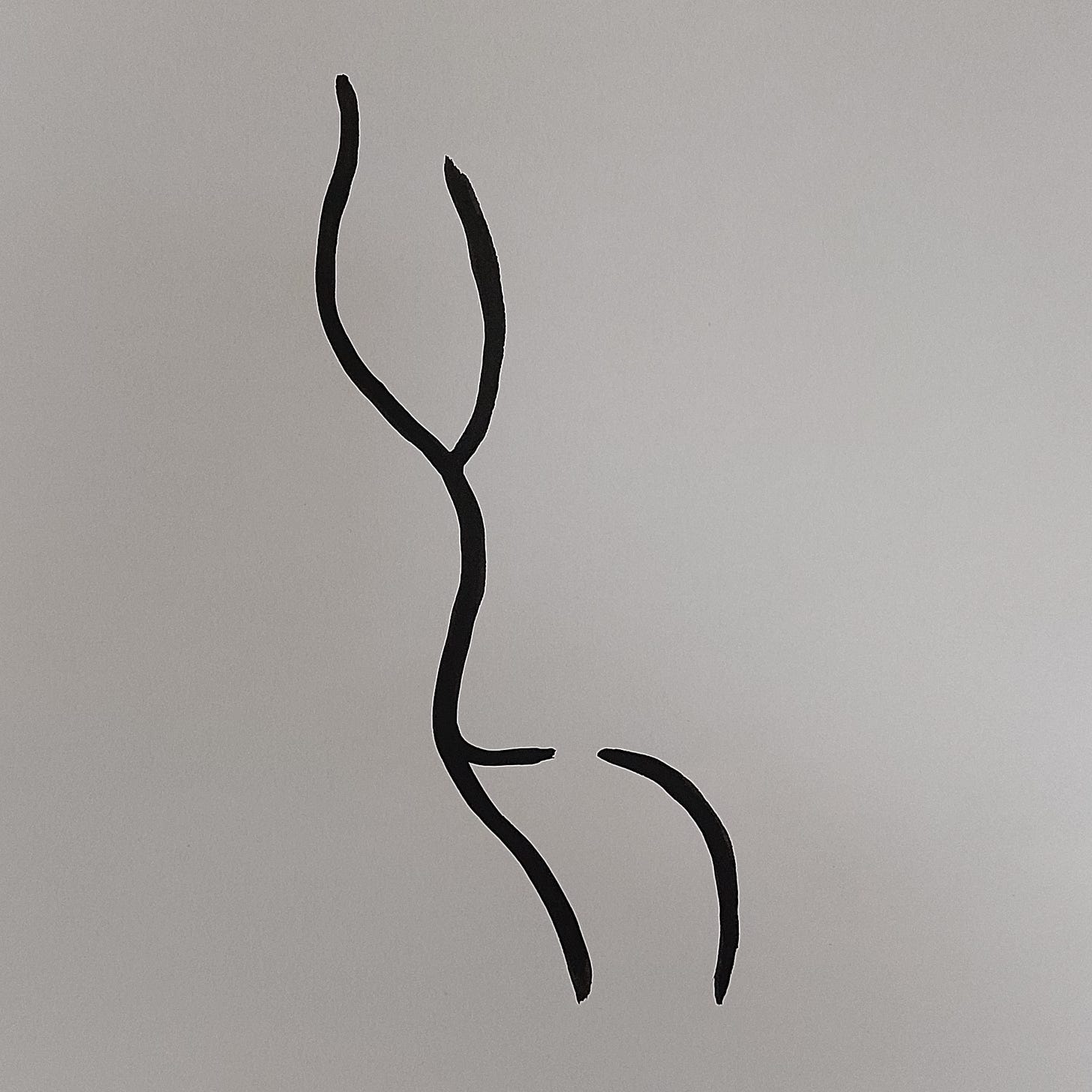


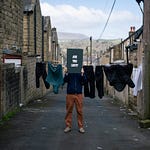
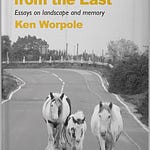

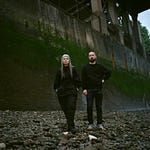
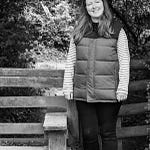
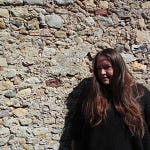
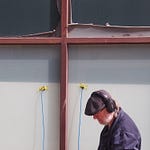
Share this post